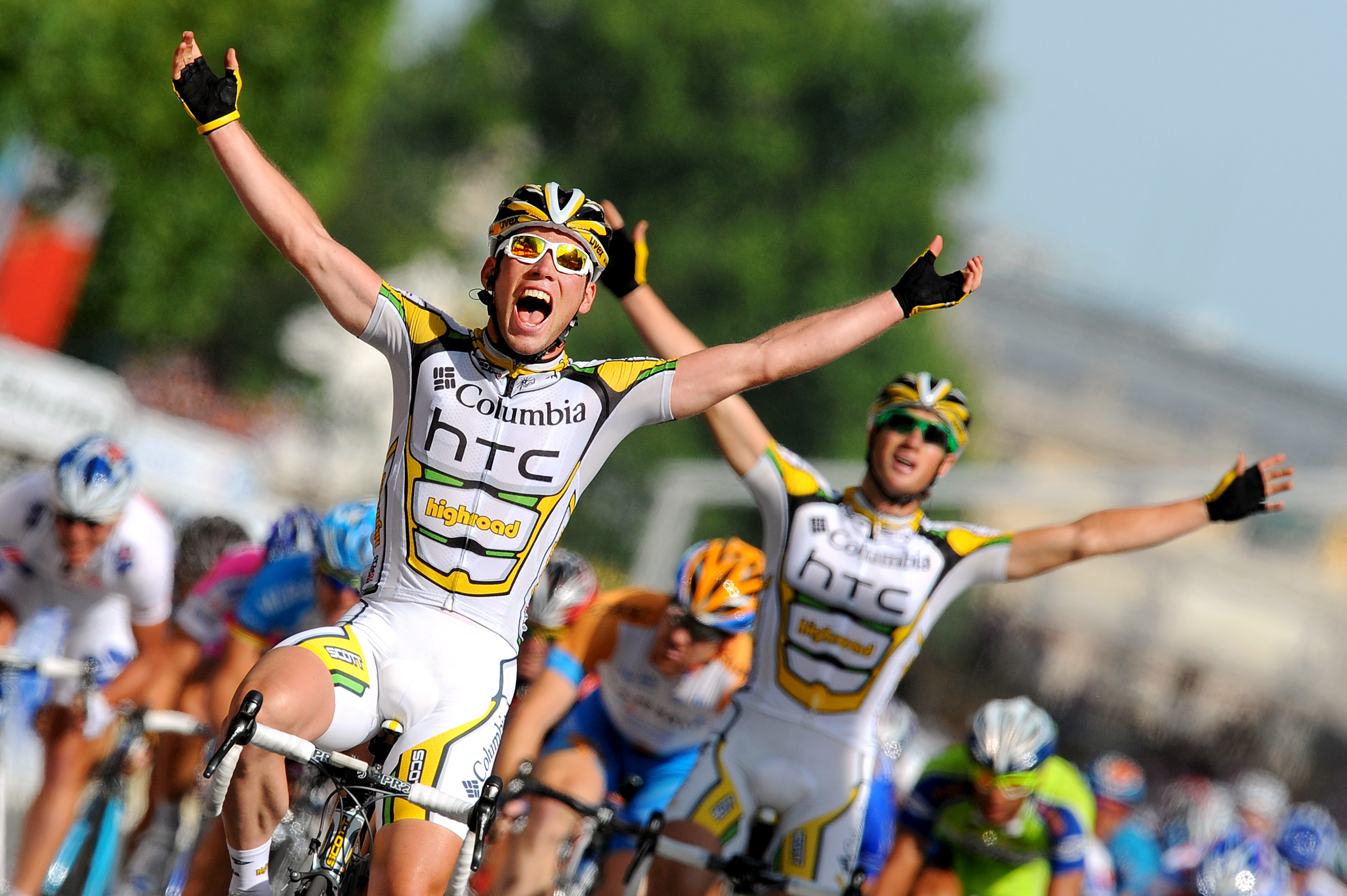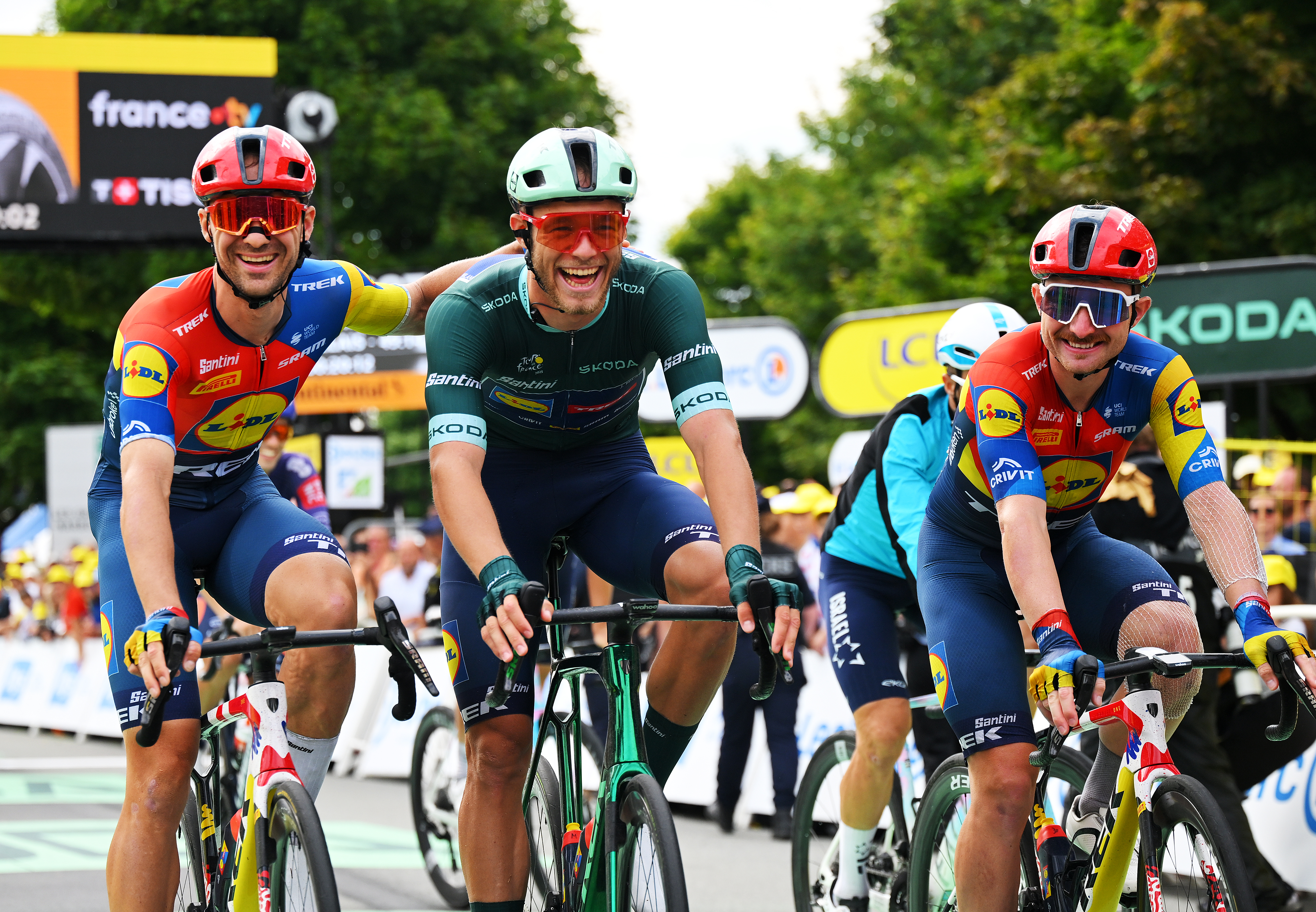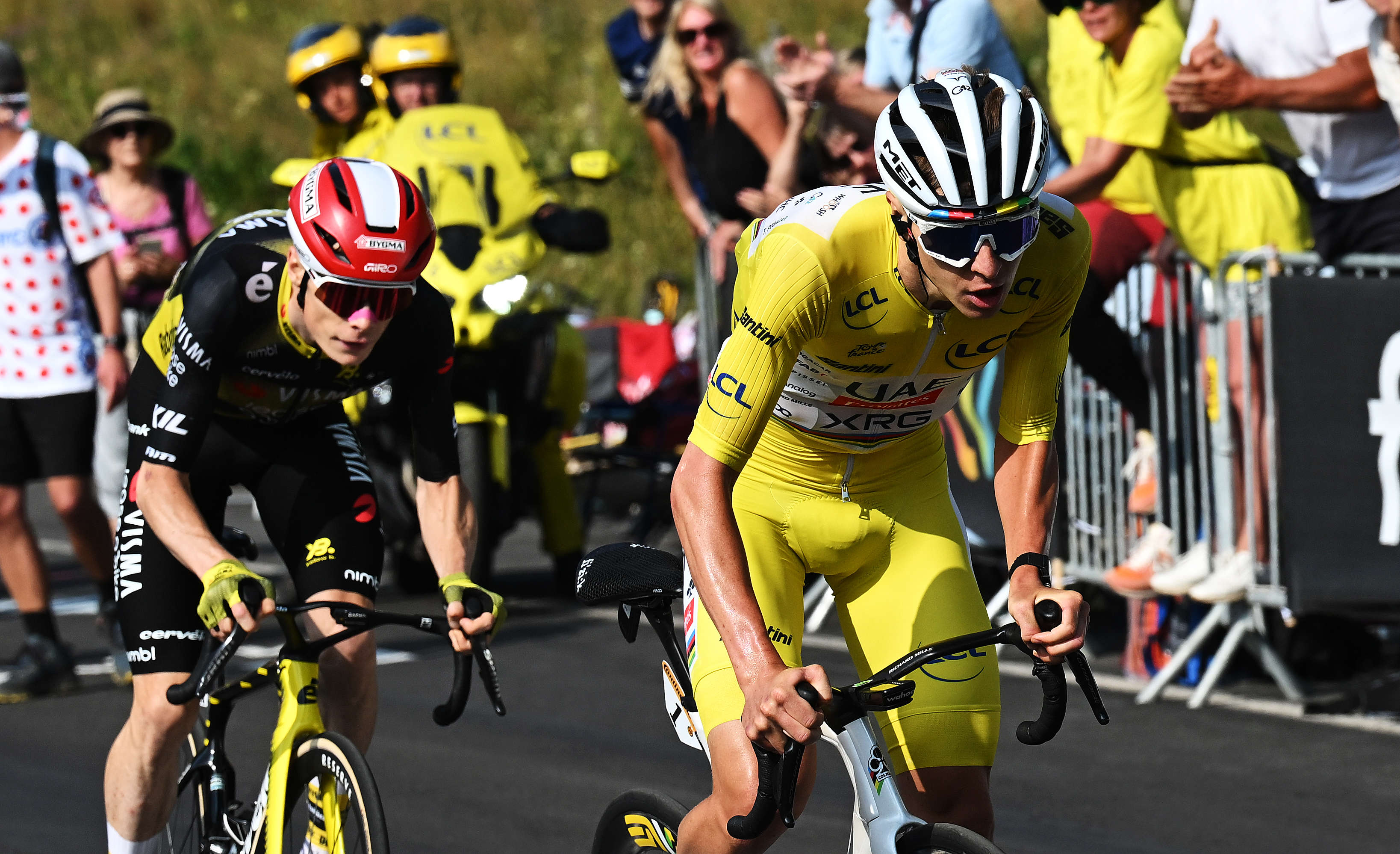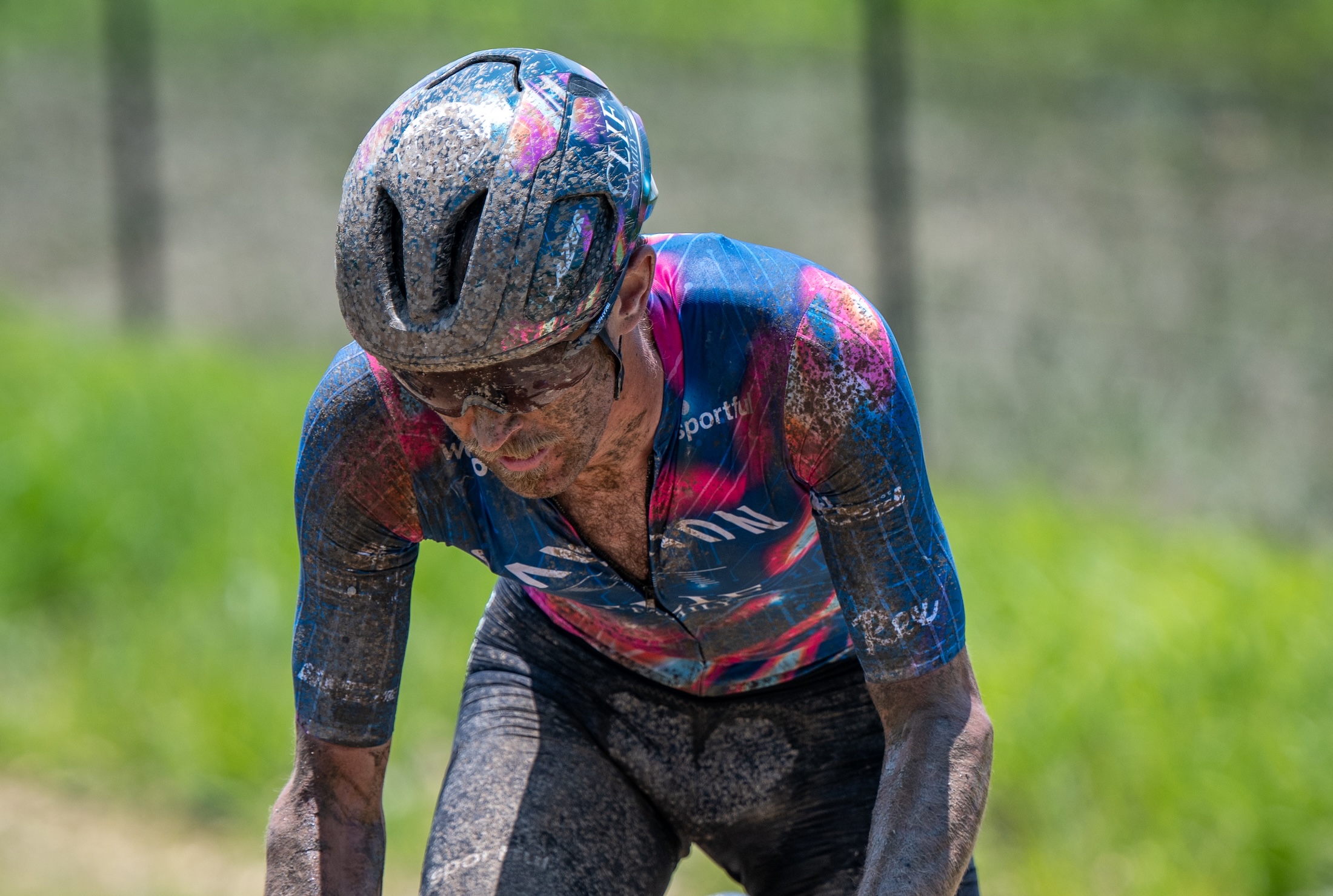A change for the better? – Tour de France riders and team management uncertain of benefits of inclusion of Montmartre climb on final stage in Paris
Triple ascent of tricky, narrow, short climb eliminates virtually any chance of traditional bunch sprint on Champs-Élysées

The latest race content, interviews, features, reviews and expert buying guides, direct to your inbox!
You are now subscribed
Your newsletter sign-up was successful
The same, but different. Whoever emerges as the winner of the last stage of the Tour de France this year on the Champs-Elysées this Sunday will automatically enjoy the prestige of capturing a victory in one of the most memorable days of the entire race.
But this year, as everybody knows, thanks to the triple ascent of the Cat.4 Montmartre climb, whoever adds their name to the roll call of sprinters and breakaways that have raised their arms in triumph on the 'most beautiful boulevard in the world' will have done so in a very different way from previous years.
The change of the stage route has had multiple side-effects, amongst them the delaying of the winner's final, full-length press conference, traditionally held the night before, until the late evening after stage 21's conclusion.
But the biggest consequence will be a very different kind of finale on Sunday evening, and it's one which, since it was confirmed this spring, has been creating all manner of debate and questions.
These range from the wisdom of including the Montmartre climb at the end of a three-week stage race at all, to the more pragmatic issue of who will benefit the most – and win this Sunday evening on the Champs-Elysées.
"I always say the same," race leader Tadej Pogačar's sports manager at UAE Team Emirates-XRG, Joxean Fernández Matxin, told Cyclingnews. "These are decisions that the organisation takes with a lot of advance warning. If you don't like it, you don't have to go.
"It's just the same as when the organisers might think that a certain stage is harder or easier, but then that's actually got nothing to do with how we decide to race it. In this case, we can't say much because we have to accept it.
The latest race content, interviews, features, reviews and expert buying guides, direct to your inbox!
"The Tour has told us what's going to happen, so that means whoever's behind on GC might have a small chance of catching up, and whoever's ahead has to feel a bit more nervous. One thing is clear: it's not going to be the usual finale, riders will be feeling worried beforehand."
According to L'Équipe, the approach is not identical to the Olympic Games, with the race going through what it graphically described on Sunday as a "pif paf sinueuse" of narrow technical streets- badly translatable as a 'twisting wham-bang' – prior to hitting the "famous Rue Lepic."
The "real battle" for victory, L'Équipe says, will begin just outside the world-famous Moulin Rouge cabaret, it claims, although it could be that a breakaway has already formed beforehand. Either way, apart from one particularly steep corner, the Virage Beaux-Parleurs, at 1.1 km and 5.9% average gradient, the climb itself is neither too hard nor too long.
Former sprint lead-outs like Mark Renshaw, who guided Mark Cavendish to victory on the Champs in 2009 and 2011, recognise that the 'twisting wham-bang' of Montmartre will certainly be a real spectacle. But they are also, Renshaw told Cyclingnews, "disappointed" that the usual mass dash for glory is being set aside for at least a year.

"My personal opinion is I'm disappointed with the Champs-Élysées, really it's known as the World Championships for the sprinters, I'd love to see a sprint but now I see a different style of rider winning," Renshaw said.
"I can see where Prudhomme was coming from, and it will be spectacular on Sunday because it's a hard race, it's explosive, riders crossing the final line one by one is always good.
"But the Giro does crazy things, the Vuelta do crazy things, generally speaking, the Tour has a bit more tradition, and I love that. I'd like to see it continue as a sprint, but I do understand."
For the record, in the 50 years of Champs-Élysées history, only four finishes have ended in a breakaway victory. The last, since it was first used in 1975, was Alexandre Vinokourov in 2005.
While Renshaw is understandably concerned about the knock-on effect on the sprinters, other directors pointed to other great Tour de France moments on the Champs-Élysées. EF Education-EasyPost's Tom Southam pointed out that one of the most emblematic finishes was when France's last Tour winner personally took a breakaway victory there.
"It's cool," Southam said, "It's gonna be a race. Didn't Hinault win there in the yellow jersey [in 1979] once when he outsprinted [Joop] Zoetemelk?
"Paris-Tours is the World Championships for sprinters, officially, or it used to be, but it seems like everybody has forgotten that."
However, more than winners or losers, Soudal-QuickStep sports director Tom Steels, himself a former winner on the Champs in 1998, told Cyclingnews that "my biggest concern is the rain."
"If it starts to rain, it can be a strange race and really tricky, it's a city race, it can be really slippery. I hope they take the time as soon as possible for the guys who did GC [before the first ascent of Montmartre], they fought for nearly four weeks in a row," he said.
"It's completely different to have this in the Olympics than in the Tour. Of course, it's an opportunity for non-sprinters to win in Paris, which is great. But for the race itself, you're going to have the GC guys; they're not going to take risks because they fought so hard for it before, through the mountains already. They suffered a lot.
"And the sprinters will say it's too tough, so it's going to be a strange race. Maybe not a final sprint like we're used to."
Steels agreed it was a pity for Tim Merlier (Soudal-QuickStep), whose chances of a third sprint victory have been drastically reduced after taking wins in the first week.
"It's a shame for him, the Champs is also usually a reward for all the sprinters, who came through the mountains and stuck it out to Paris for a really nice race. And now they maybe try, but it's quite hard for a sprinter there."
As for the riders themselves, asked after winning stage 17 in Valence if he was annoyed that the sprinters would lose their chance of victory, green jersey holder Jonathan Milan (Lidl-Trek) remained resolute about his drastically reduced options.
"I don't want to start [stage 21] already thinking about losing my chance. But it will be a bit more complicated to control it, it will be a different scenario, of course," said Milan.

"I never did the Champs-Élysées before, and I already spoke to the guys who did the Olympic Games last year, and they said it was already a bit chaotic with the 50, 60 riders that arrived there in the final.
"So, for sure, it will be a big fight to take this climb in the first positions. We will try to give our best."
Tactics will certainly change radically, and stage 20 winner Kaden Groves fielded one question during his post-stage press conference about whether he had opted to go for a breakaway victory given how tough it would be to win on Sunday in Paris.
"I'm quite familiar with the climb, watched the Olympics, but I've not ridden it myself, and I don't really have a strong opinion," Groves said.
"I would have liked my first Champs-Élysées experience to be the original stage 21, but I also think it will be a spectacle tomorrow [Sunday], but this first one, I'll probably just enjoy it and see how my legs feel.
"The only good side about it is that now everybody must race, because generally only 50 guys come in to that last stage with super motivation," Renshaw added, "and the other guys rolling across, I enjoy the fact everybody races to the line now. But I'd love to see it go back to a sprint."
UAE were cagey about their chances of Pogačar going for a final victory, although Tim Wellens perhaps gave something of the game away on stage 20 when he said that rather than the day being one for him to go in a breakaway, he'd be working for teammate Jhonathan Narváez and the yellow jersey.
Narváez has already shone in similarly difficult, punchy finishes in Grand Tours, winning in Turin on stage 1 of the 2024 Giro ahead of Pogačar, but Wellens didn't specify if that meant working to get Pogačar safely across the final finish line, given the rather bigger goal of a fourth Tour de France overall victory is in play too.
For Pogačar, four stage wins is already a huge haul, but as a final chance to remind his rivals who's boss as the curtain falls on the 2025 Tour, it's never too early to start the mind games for the 2026 race – and a Champs-Élysées victory would suit him perfectly.
"It's not part of the plan," UAE sports director Andrej Hauptmann told L'Équipe with a grin, "but with Tadej, you never know." It's also true that with such a new final, though – nor does anybody else.

The Tour de France is the biggest race in cycling, and a Cyclingnews subscription offers you unlimited access to our unrivalled coverage. Get all the breaking news and analysis from our team on the ground in France, plus the latest pro tech, live race reports, and a daily subscriber-only newsletter with exclusive insight into the action. Find out more.
Alasdair Fotheringham has been reporting on cycling since 1991. He has covered every Tour de France since 1992 bar one, as well as numerous other bike races of all shapes and sizes, ranging from the Olympic Games in 2008 to the now sadly defunct Subida a Urkiola hill climb in Spain. As well as working for Cyclingnews, he has also written for The Independent, The Guardian, ProCycling, The Express and Reuters.
You must confirm your public display name before commenting
Please logout and then login again, you will then be prompted to enter your display name.

